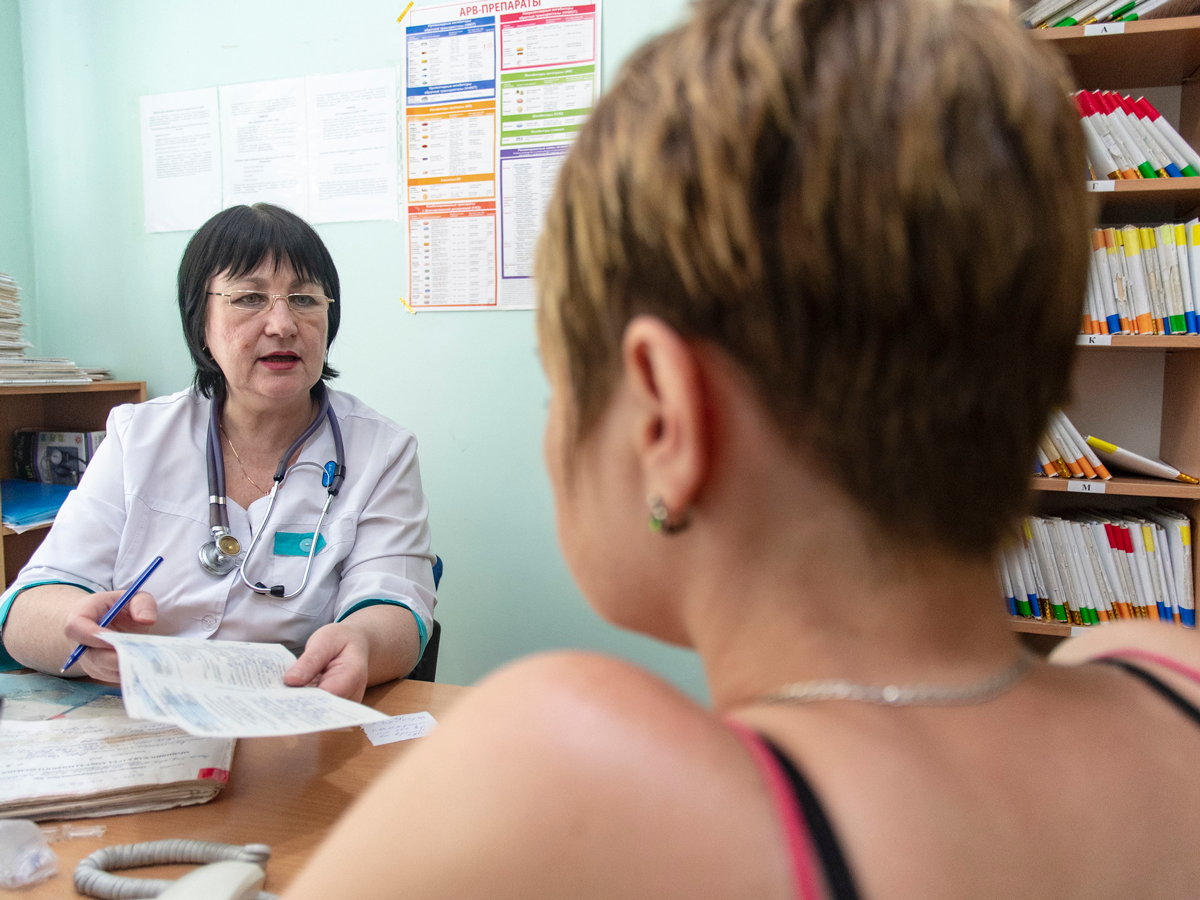While rates of new HIV infections and deaths from AIDS are declining globally, Central Asia is one of a few regions in the world where this trend is moving in the wrong direction. An estimated 400 people are newly infected and almost 100 people die from AIDS-related illnesses every day. Almost all of these new infections are among highly stigmatized populations including people who inject drugs, men who have sex with men, transgender people, and sex workers.
Within the Central Asia region, Kazakhstan has been particularly hard, with its capital city, Almaty, at the epicenter of both the country’s HIV and substance abuse epidemics. In fact, it is estimated that the HIV prevalence rate in the city is almost double the national rate.
In Central Asia, ICAP has been on the front lines of HIV prevention, care, and treatment services since 2011, providing technical assistance to improve the quality of HIV testing and treatment services and augment data management systems to inform national HIV programs. ICAP programming in the region, including in Almaty, has worked to overcome barriers of access and stigma to ensure that communities vulnerable to acquiring HIV can access stigma-free prevention, testing, and care services.
Now, ICAP has been awarded funding from the newly launched RADIAN initiative, a partnership between the Elton John AIDS Foundation and pharmaceutical company Gilead Sciences, to continue its work supporting communities most-at-risk for new HIV infection in Almaty.
As part of the RADIAN award’s ‘Model Cities’ program, ICAP will leverage its deep community ties and technical expertise to lead a consortium of local partners to strengthen the city’s clinical and community-based HIV service delivery using evidence-based and patient-centered interventions. The project will focus on people living with HIV, including people who use drugs, men who have sex with men, transgender people, and sex workers. Over the next five years, the initiative will work to prevent new HIV infections and ensure good quality care for HIV-positive people in the city.
“ICAP’s work in Kazakhstan and the entire Central Asia region has shown the importance of building bridges of understanding between health providers and communities most-at-risk for HIV infection in the provision of HIV prevention, care, and treatment programming,” said Anna Deryabina, MD, DrPH, MScIH, ICAP’s regional director in Central Asia. “We are proud of the work we have done so far for the people in Central Asia and are excited by this new funding from the RADIAN initiative to focus our expertise in the city of Almaty for even greater impact.”
A global health leader since 2003, ICAP was founded at Columbia University with one overarching goal: to improve the health of families and communities. Together with its partners—ministries of health, large multilaterals, health care providers, and patients—ICAP strives for a world where health is available to all. To date, ICAP has addressed major public health challenges and the needs of local health systems through 6,000 sites across more than 30 countries. For more information about ICAP, visit: icap.columbia.edu.








